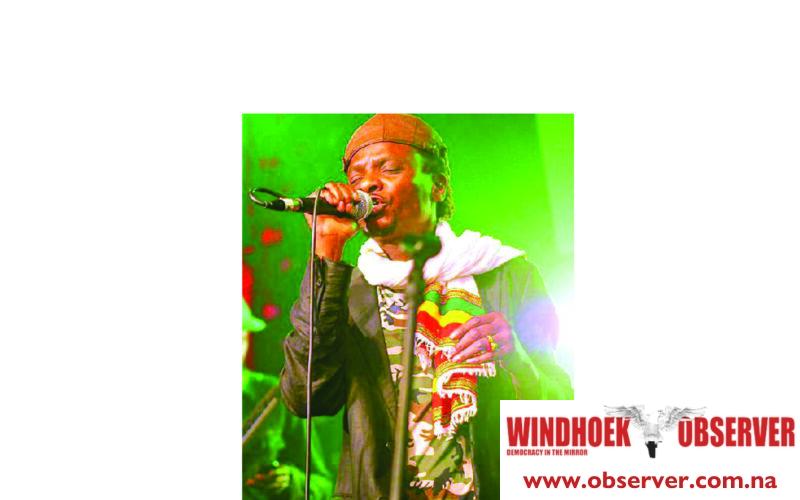Allexer Namundjembo
The death of reggae legend Ras Sheehama has reopened a painful conversation about mental health in the country, sparking calls for urgent action to ensure that no one suffers in silence.
Sheehama died by suicide on Friday at the age of 59.
He was known for his powerful blend of African rhythms and socially conscious lyrics, Sheehama’s music resonated far beyond Namibia’s borders.
His passing has drawn attention to the struggles faced by artists and ordinary citizens alike, particularly the silent battles of mental health.
“The tragic circumstances of his death highlight the urgen need for our nation to strengthen our capacity to address the rising cases of suicide and to foster a society where no one suffers in silence,” said President Netumbo Nandi-Ndaitwah.
Nandi-Ndaitwah described Sheehama as a “musical legend who awakened the country’s spirit during its struggles.”
Tributes poured in, but activist Frans Koolike reflected on how Namibian society often marginalises cultural icons. He said Sheehama’s passing “has brought to light more aggressively the question of social justice and the kind of society we become.”
He described him as a man who carried the struggles of the people in his music and daily life.
“He understood what time it was; he grasped the weight of the struggles faced by the multitude of our people. In my countless interactions, I recognised his socialist character and his agony over the dystopian state of affairs in the country,” he said.
Koolike recalled Sheehama’s solidarity with the San people, including his attendance at the first-ever San cultural festival in Gobabis in 2023. He criticised the lack of institutional support for artists and argued that Sheehama deserved a diplomatic passport, a proposal once raised but never realised.
“Now, we witness the hypocrisy of condolences,” he said, noting that Sheehama was sometimes sidelined or underpaid at political rallies.
From the Netherlands, his wife Saskia Sheehama expressed grief. “I am immensely sad and in shock that you could not feel there was any other way,” she wrote, wishing she had been with him in his final moments. “Rest in peace Rasta na Onakayale. Love you always.”
His death reignited frustrations among Namibian artists, who say they often struggle to make a living. Local performers have long complained about being sidelined or underpaid, especially compared to international acts.
The suspension of the Namibia Music Awards deepened this neglect, stripping artists of a key platform for recognition. Attempts to engage government institutions such as the Directorate of Arts and the National Arts Council have often gone unanswered.
Calls for reform are growing, with proposals for radio quotas to prioritise Namibian music. DNAFF Entertainment described Sheehama as a storyteller and a voice of unity and justice.
Musician Mr. Makoya said Namibia had lost a “towering figure.” Esme Katjikuru recalled performing his songs at major events, while Umbi Karuaihe Upi reminded the nation that “suicide is never a solution.”
Gazza said his passing was a call to build stronger support platforms in the creative industry, particularly for men who carry struggles in silence.
The Namibian Society of Composers and Authors of Music (Nascam) said he shaped the foundation of the creative industry. Prime minister Elijah Ngurare called his passing “immensely painful,” while the Swapo Party Youth League praised his voice and spirit during the liberation struggle.
Sheehama’s life was shaped by struggle and resistance. In 1979, at the age of 12, his father’s pro-Swapo stance forced the family into exile in Angola and later Zambia. There, he discovered reggae and developed a style that merged Rastafari influences with political commentary. Between 1984 and 1988, he lived in Lagos, Nigeria, where he attended school, played with reggae bands, and wrote early songs such as Cassinga.
He returned to Namibia in 1990 before the country’s first free elections and launched a solo career. His albums Cassinga, Inotila, Push and Pull, and City Young Girl became anthems of resilience and hope.
His influence extended globally, with performances across Africa, Europe, and beyond, from the Africa Festival in Germany to concerts in the United Kingdom, Cuba, Portugal, and Switzerland. He shared stages with legends such as Manu Dibango and Don Carlos.
Ras Sheehama was born on 29 July 1966 in Onakayale, Ombalantu. He is survived by his wife and children.




